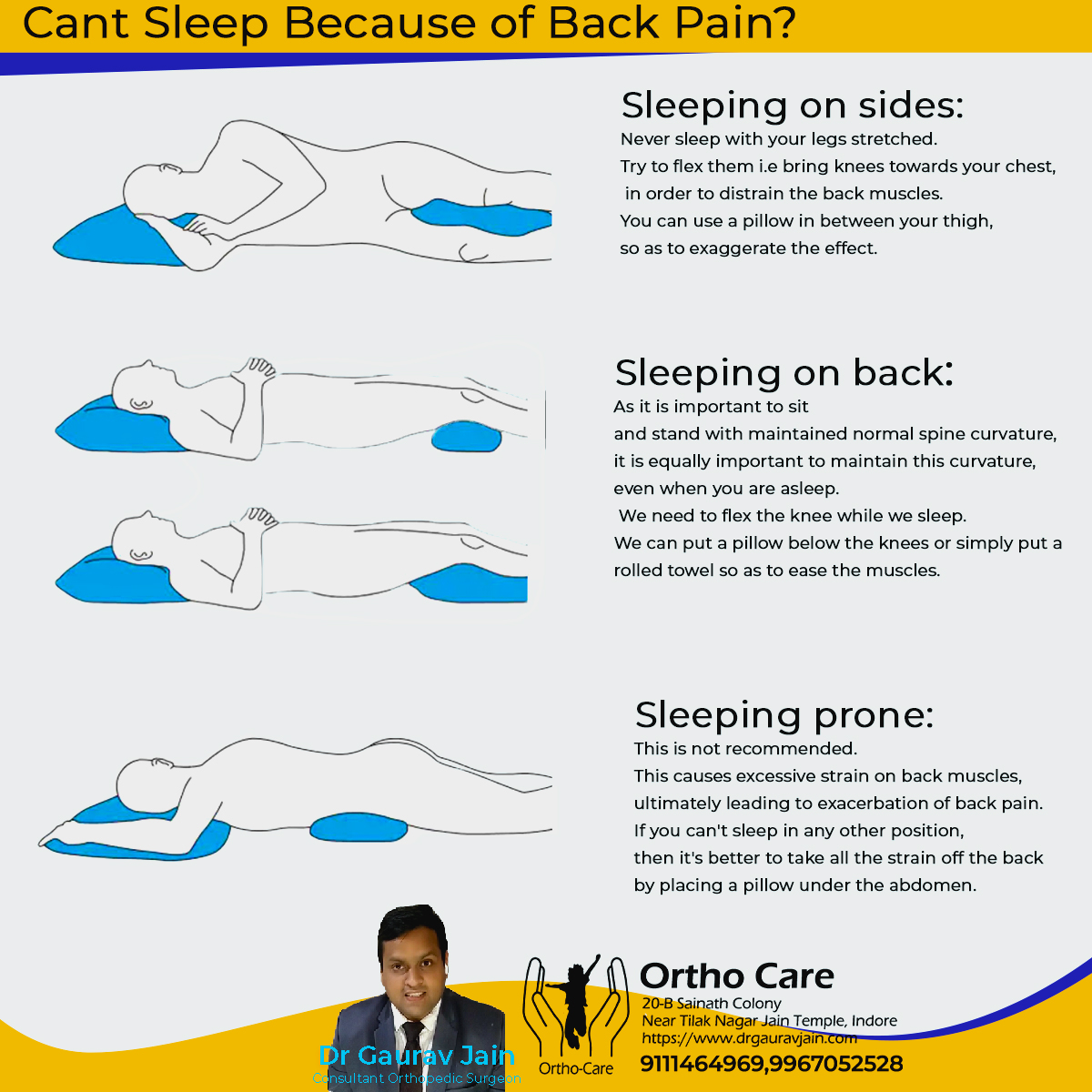With the advent of new technologies, the lifestyle of we humans are completely changed. We are now spending more time on desktops than on the field. This has come with many health issues and back pain is one of them.
Evolutionarily, humans gave up walking on four legs, so as to get more work done with hands, the whole grunt of this came to the spine. Various adaptations made our spine more susceptible to injuries and fatigue. Biomechanically, Any deviation to the” Ideal posture” leads to disastrous implications. This is why back pain is the leading cause of comorbidities throughout the world these days.
Though there are several other factors for back pain, muscle weakness is the most common and leading cause.
That is why ergometric posture, work office designs are being more and more recommended these days.
Sleep and pain are intricately related as they share similar pathways and neurotransmitters. Recent shreds of evidence state that the effect of sleep on pain is much more profound than the effect of pain on sleep. Sleep deprivation definitely has a drastic effect on pain sensitivity. Many studies have shown that females are more sensitive to pain than males and young people have more pliability than elderly populations.
This all leads us to debate “ How should we sleep?”
Key 1: Improve Sleep Posture
As we know, our back pains because of the excessive stress that we lay over it throughout the day, at night it's time to relieve the muscles and make them recover. Hence how we sleep makes a hell lot of a difference. Scientific literature is full of such recommendations.
Sleeping on sides:
Never sleep with your legs stretched. Try to flex them i.e bring knees towards your chest, in order to distrain the back muscles.
You can use a pillow in between your thigh, so as to exaggerate the effect.
Sleeping on back:
As it is important to sit and stand with maintained normal spine curvature, it is equally important to maintain this curvature, even when you are asleep.
We need to flex the knee while we sleep.
We can put a pillow below the knees or simply put a rolled towel so as to ease the muscles.
Sleeping prone:
This is not recommended.
This causes excessive strain on back muscles, ultimately leading to exacerbation of back pain.
If you can't sleep in any other position, then it's better to take all the strain off the back by placing a pillow under the abdomen.
Key 2: Improve mattress
This is very controversial.
Doctors recommend sleeping on a Firm mattress, But it's often found that patients back pain tend to increase after doing this.
Similarly, there are recommendations that take your hip and waist into consideration.
Soft mattress: If Hips are wider than waist
Hard mattress: If the Waist is wider than the hips.
But it finally comes down to “ How you feel comfortable with ?”. Hence it depends on body type to body type to go for a hard or soft mattress. The thing that works for you might not be equally effective to others.
But make sure that your mattress is not worn out or depressed in the centre. If it's a cotton mattress consider changing it every 2-3 years, as the cotton tends to get dispersed towards the periphery in due course of time.
We need to follow one simple concept that is to maintain the spine in an ideal posture.
Key 3: Bed Habits and not Bad Habits
As we have already deduced that Sleep and Pain are intermingled, we must consider developing a good Bed Habit.
- Avoid Screen 2 hrs prior to going to sleep.
- Try to read before going to sleep.
- Room colour must be timid and not bright.
- It's always better to sleep with mild night lamplight.
- Avoid consuming High-calorie foods just before going to sleep.
- Avoid caffeine. Take Milk.
Mild Stretching /Yoga is helpful.
- A Short walk in the evening is beneficial. But avoid heavy exercises.
- Sleeping Aids [Under Medical Supervision]
- Herbal preparations: Valerian capsules and chamomile tea
- Fruit extracts: Cherry juice or capsules of tart cherry extract
- Micronutrient supplements: Zinc and/or magnesium
- Synthetic preparations: Melatonin capsules or tablets
- Get in and out of bed gently.
- Don't make any jerky movements.
- Regularly Do CORE exercises.
- Develop a bedtime routine.
Key 4: Don't Give up
In order to get good night sleep, it's essential to get rid of back pain, but it's not always the case.
There are various other factors that can cause pain, such as anxiety and stress and you should get medical help for it.


